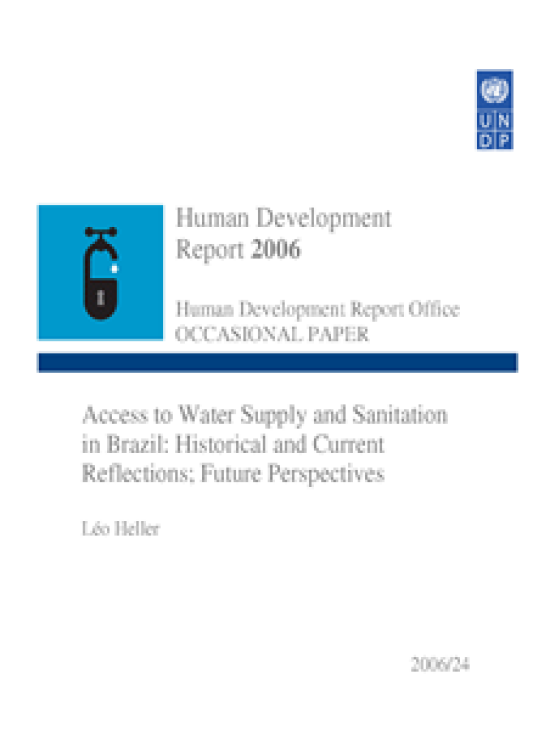Access to Water Supply and Sanitation in Brazil
Historical and Current Reflections; Future Perspectives

Download Report by Language
Document
hellerleo.pdf
(1.06 MB)
Citation
Heller, Leo. 2006. Access to Water Supply and Sanitation in Brazil: Historical and Current Reflections; Future Perspectives. New York.
Access to Water Supply and Sanitation in Brazil
Historical and Current Reflections; Future Perspectives
Posted on: January 01, 2006
The paper provides an analytical description of water supply and sanitation in Brazil. While acknowledging the fragility and imprecision of available quantitative indicators, particularly in measuring service coverage, it attempts to identify trends. A description of the sector’s evolution is included which seeks to identify milestones along the way that present obstacles and opportunities for the current day. Experiments are described—municipal cooperatives and experiments, state company experiments and the condominial system—that may be considered successful and supply paradigms for a new scenario. Finally, there is a look ahead to possible scenarios for the future, based on the current legal and politico-institutional landscape. In this connection the paper highlights the federal government’s bill for Law no. 5.296 and the potential it has to supply what the sector historically has lacked—the setting of clear guidelines for service provision that would lead to universality and improvements in the quality of service for the population. The document tries to show that, although important advances in water supply and sanitation have been made in Brazil, there remains a significant deficit to be addressed. Namely, that a more satisfactory framework, including progress in meeting the Millenium Development Goals, will be produced only when the sector’s public policy dimensions, and its need for effective administrative tools, are seriously taken into consideration. Furthermore, it is suggested that subsequent analyses of this reality and its evolution ought not to ignore the tensions produced in the struggle within the sector for social, economic, and political power, which variously pits its different actors—federal authorities, private enterprise, and civil society— against one other.

